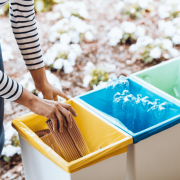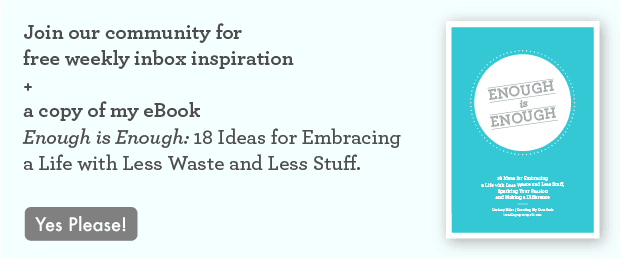7 common recycling mistakes that people make (+ what to do instead)
Talking enthusiastically about recycling might feel like stepping back into the nineties, when most of us thought (didn’t we?) that recycling was an effective way to combat climate change. (Or was that just me…?)
A few decades on and the pressing issues of the day have most definitely scaled up.
But recycling hasn’t gone away… and it hasn’t stopped being necessary, either.
It’s just been displaced from the top of the podium, where it never really deserved to be. It’s less of an “eco action that make us a champion”, and more just a regular habit that most of us embrace willingly because we know it’s the right thing to do.
If we live in a place with effective recycling infrastructure in place, recycling is the least we can do.
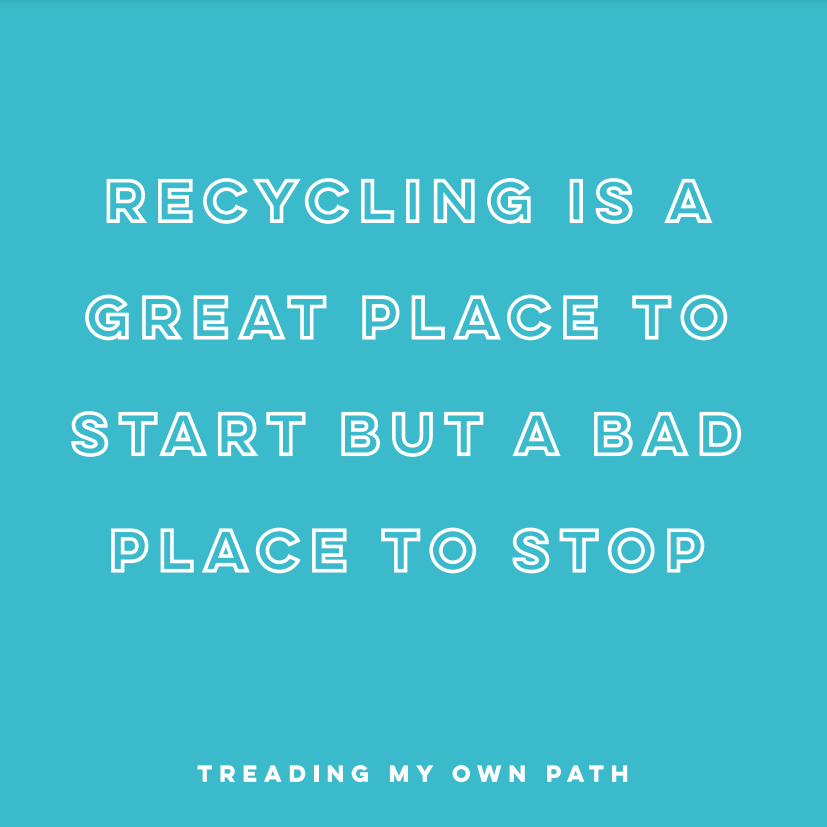
Recycling might be the eco-lite version of living sustainably, but until we move to a world where reusables prevail and single-use packaging isn’t a thing (and I can’t see this happening any time soon…) it’s one of the simplest ways for us to conserve resources.
The trouble is, we all want everything to be recycled, which means we can end up putting non-recycables in the recycling bin. Which of course ends up contaminating that waste stream.
There are a few simple mistakes that happen time and time again.
I’m currently working on a bin tagging waste education project with the local government in my area. I literally walk around the suburbs in the early hours looking in people’s bins, and then leaving them a tag on their bin telling them if they are doing it right, or if there are any small things they need to change.
Having looked in over 2000 bins in the past few weeks, I can tell you the most common mistakes I’ve seen, and how to fix them.
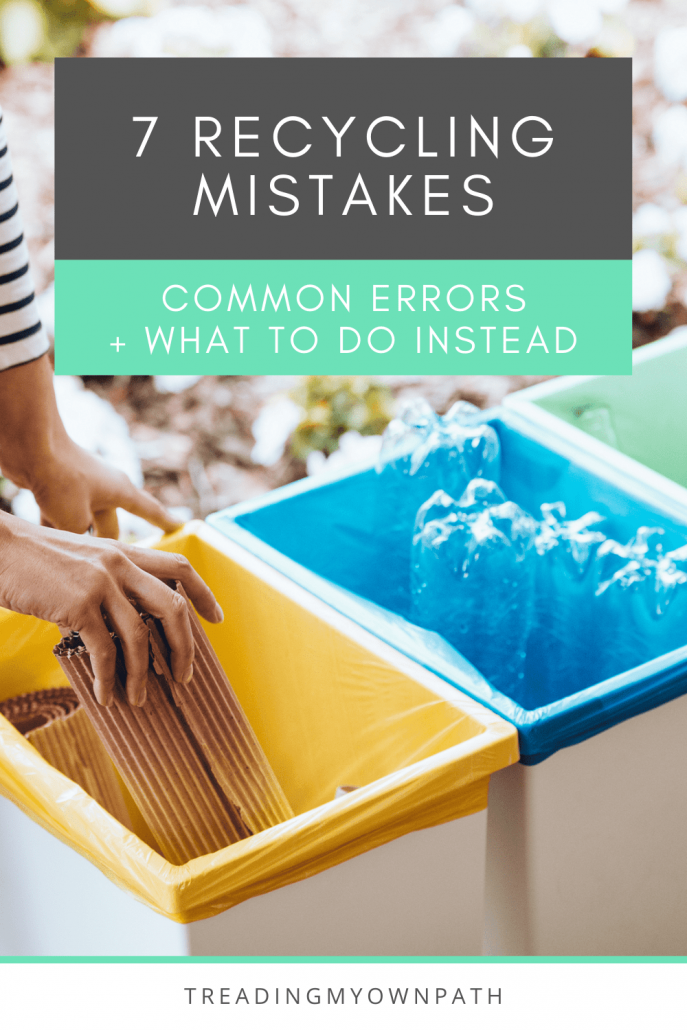
7 common recycling mistakes that people make (+ what to do instead)
Recycling is not the same everywhere in the world. Different countries and even cities have different infrastructure and facilities to sort materials, different collection systems and different markets for materials. It’s always best to check with your local council to find out exactly what can be recycled where you live.
That said, there are some pretty common and universal mistakes that can be avoided.
1. Greasy cardboard and other packaging is not recyclable.
Dirty pizza boxes, burger boxes and chips boxes with grease stains cannot go in the recycling bin. Only cardboard that is clean can be recycled into new cardboard. With greasy cardboard, you can cut any cleans part off (often the lid is clean) and recycle that, but the greasy part needs to go in a compost bin, food waste collection service that accepts cardboard, or the general waste bin.
2. Tissues and paper towels are not recyclable.
Whilst technically paper, tissues and paper towels are already a low grade of paper with short fibres, which makes them unsuitable for recycling.
Paper, unlike metal or glass, isn’t infinitely recyclable. Every cycle shortens the fibres and makes the paper a lower grade, until they become so short that they eventually become unrecyclable.
Instead, tissues, toilet paper and kitchen towel can be composted, or placed in a food waste collection service. Otherwise, they need to go in the general waste bin.
And you might think it goes without saying that used tissues and kitchen towel with food scraps are also not recyclable, but I’ve seen it often enough these past four weeks to know that there are a few that haven’t got the message.
And so the same applies. No, not recyclable. Yes, it’s fine to compost used tissues. The processing and temperatures will kill any germs.
3. Cleaning ‘chux’ cloths and wetwipes are not recyclable.
Those blue-and-white (or sometimes green- or red-and-white) cleaning cloths are made of plastic, not paper, and so are wet wipes, and they cannot go in the recycling bin. Sometimes the material can feel like paper, but a good way to check if something is actually plastic is to try and tear it. Woven plastic like this won’t tear like paper.
The same applies to disposable masks: plastic and not recyclable!
These cleaning cloths are destined for the general waste bin. The best option is to try and find a truly compostable reusable alternative (those Swedish dish cloths are great), or even kitchen towel which is plastic-free.
4. Unrinsed containers can contaminate recycling.
This one is more of a grey area, as it depends what material the container is, what residue is left and how much of it there is. I’ve even seen some councils (not in Perth) say no need to rinse containers.
There a few reasons councils might say that you don’t need to clean containers. It might be because cleaning might be a barrier that stops people recycling. Or it might be that they don’t have to be stored in a facility on 40oC days where leftover milk and cat food is really going to go putrid, fast.
But the truth is, clean recyclables always have more value than dirty ones.
Where you can, give them a quick rinse. You can use the end of the dishwater after doing the dishes so you’re not wasting water. They don’t need to be perfect.
Plastic in particular is one to try and clean as plastic is shredded for recycling, whereas metals and glass are melted to very high temperatures that can burn off some of the contamination.
5. Bioplastic containers are not recyclable.
These are the containers that look like plastic but say they are made from plants. Often the marketing material will say they are compostable AND recyclable. Seeing these two claims together for a synthetic product always raises alarm bells for me.
Whilst the material might be theoretically recyclable, when mixed with regular plastic it is too tricky to tell them apart -most waste sorting facilities do not have the technology to do so. Which means the bioplastic is mixed with regular plastic, but it starts to degrade and undermines the integrity of the recycled product.
This type of plastic is also a problem for commercial composters for the same reason – the technology they use to pull regular plastic contamination out can’t spot the difference. Perth has commercial composting facilities, but still can’t take bioplastic containers that look like plastic. They need to go in the general waste bin.
6. Takeaway coffee cups are not recyclable.
Plenty of people still think coffee cups are made of paper and are therefore recycable. But they are plastic-lined, have a lid made of a different material (usually non-expanded polystyrene which is not itself recyclable) which is usually not separated, and tend to be unrinsed (and often half full of coffee).
Coffee cups need to go in the general waste bin.
(There is a scheme in Perth where you return used coffee cups to a store and they are “recycled”. They are actually mixed with plastic agricultural waste – 10% cups to 90% plastic waste – to make low grade plastic bollards etc. In my book, that’s not really recycling. That’s burying it under the plastic I mean carpet I mean plastic.)
7. ‘Recyclable’ is not the same as ‘actually able to be recycled’.
Lots of things are theoretically recyclable, and might be recycled in other places, but that doesn’t mean they are recyclable where we live. Or they might be recyclable, but not through kerbside recycling.
The specifics of this will vary where you live. The following items often contaminate Perth kerbside recycling bins so it might be worth checking out the rules for your location too:
- eWaste (anything with a plug): these items can be recycled, but you can’t just pop a printer in your recycling bin if you live in Perth. These items need to be dropped off at a waste depot, or TV and computer items and accessories can also be taken to Officeworks for recycling free of charge.
- Batteries: these are hazardous and can cause fires in trucks that compact waste. Button batteries are also a choking hazard and cause internal burns if they escape the bin and end up in the environment. They can be recycled, but need to be dropped off to a collection point. Often libraries, shopping centres and schools will collect them, as well as the local waste depot.
- Long-life UHT cartons: the ones that are foil-lined and are typically for products stored in the pantry (long-life milk, juice, coconut water and stock) are not recyclable in Perth, or anywhere in Australia as there are no specialist facilities to process them. In other parts of the world, they have a better fate, but in Perth they end up in the general waste bin.
- Textiles: another item that can be recycled, just not in the kerbside recycling bin here in Perth. Clothing can be taken to H&M stores for recycling, and some local councils have collection points, or Upparel will collect textiles from your home for recycling for a fee.
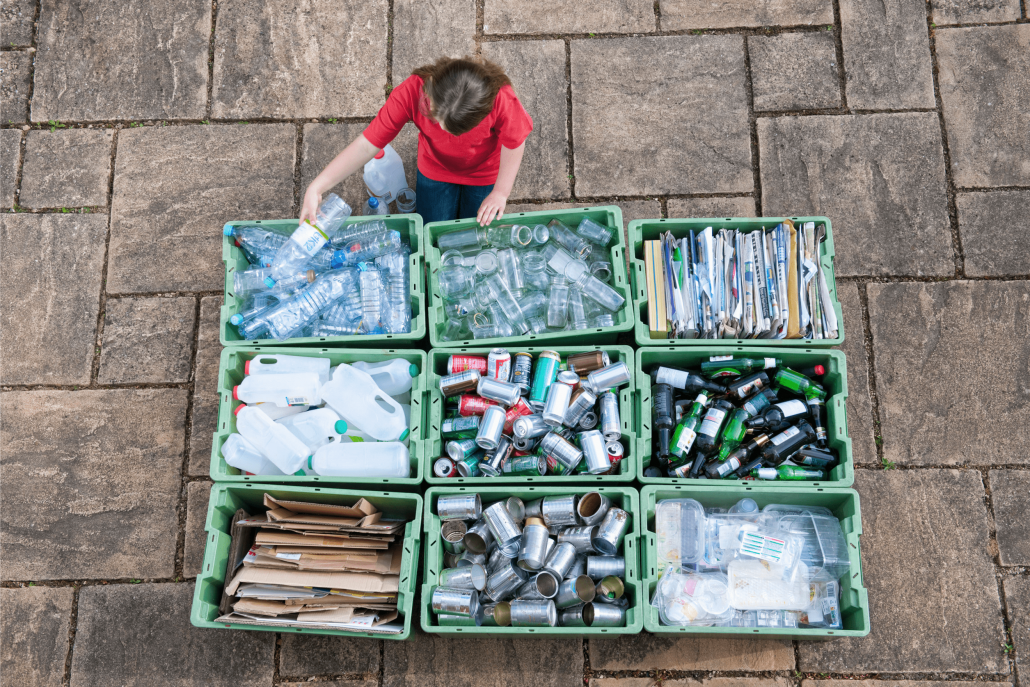
A final word on recycling. With the current extreme weather events happening worldwide, be it wild winds or savage fires or unprecedented flooding, it would be easy to think that recycling is not going to help.
And you’d be right – recycling isn’t going to fix climate catastrophes.
But it is helping to solve a different problem – the problem that society uses too many resources, and doesn’t re-use enough of those resources.
Plus, getting better at recycling is within the grasp of most of us. Once we know the recycling rules, it’s a pretty low-fuss habit to assimilate into our routine.
So recycling has its place, just as voting out climate-denying governments, and boycotting unethical companies, and protesting, and writing letters to politicians and business owners and public figures also have their place.
Getting our recycling right is an easy first step. But of course, it’s just the start…
Now I’d love to hear from you! Do you feel confident about recycling correctly? Any of these you didn’t know? Any interesting quirks to the recycling system where you live? Or are you still waiting for kerbside recycling to come to your area? Any other tips to add? Please share your thoughts in the comments below!

